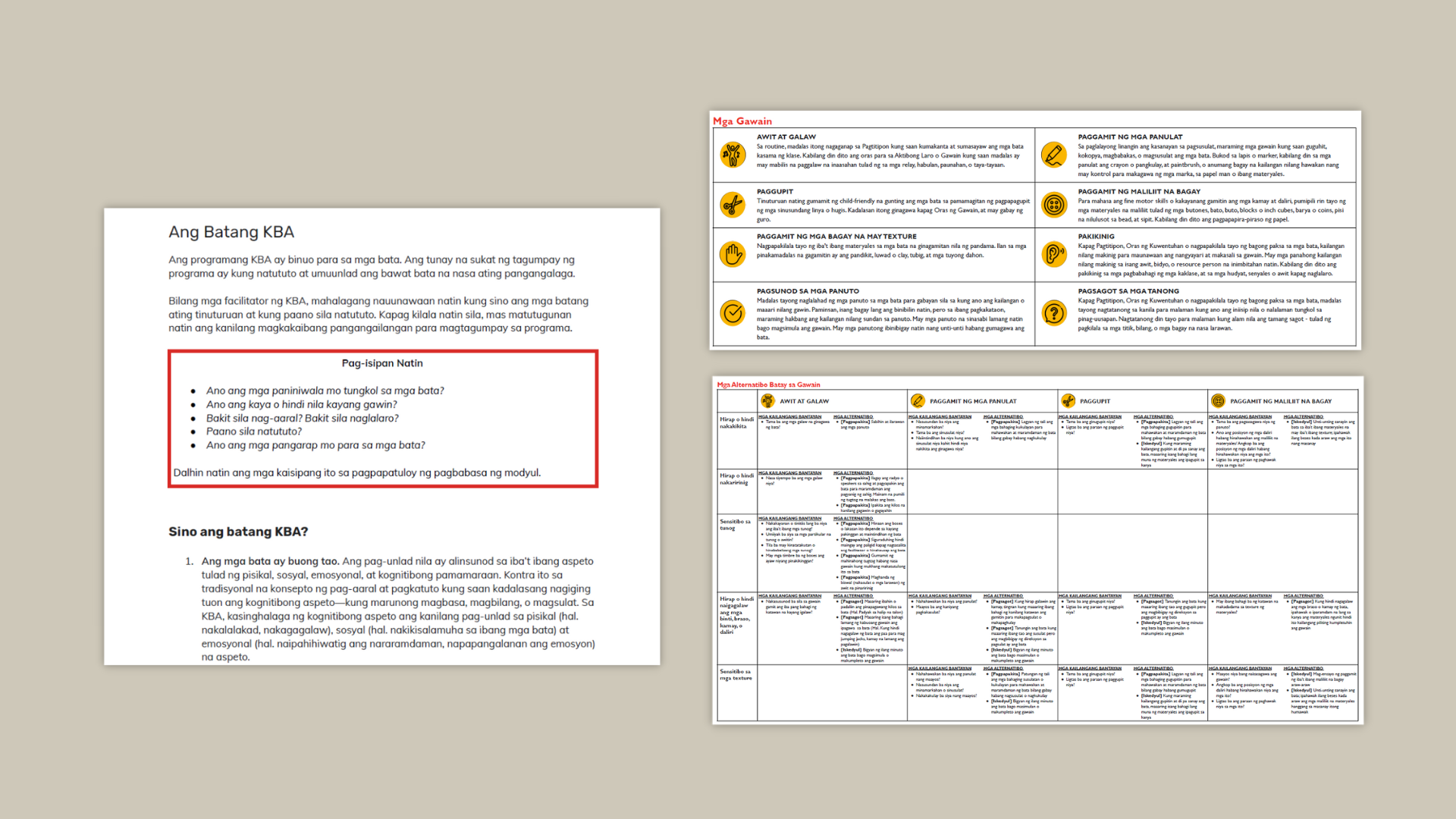SCP developed Kapitbahay-Aralan (KBA) Modules, which are early learning and development modules for alternative education for children ages 3 to 5 years old. These modules are implemented by caregivers, parents, and trained facilitators. Recognizing that children learn differently, develop at varying paces, and have certain physical, emotional, and mental needs, SCP worked with Habi to make the KBA Modules more disability-inclusive.
To build the capacity of the caregivers, parents, and facilitators Habi was able to produce ready-to-insert write-ups about inclusion, accommodation, options, and alternatives, map out and tag the module activities according to activity types, suggest inclusive accommodations based on activity type and children’s behavior and characteristics, and recommend improvements to the design and layout of the module guides and worksheets.
Task
How might we advocate for inclusive practices in the implementation of the Kapitbahay-Aralan modules?

Understanding Inclusivity
To better understand inclusivity, we turned to the expertise of Tina Halal, an inclusive education specialist and higher education teacher from Miriam College. She explained strategies for being inclusive and the different alternatives facilitators can use to accommodate the varying needs of their learners.
Recommending Inclusive Alternatives
The initial plan was to produce activity-specific guides providing options and alternatives to each and every activity in the modules. We soon realized that a more strategic approach would be to categorize the module activities into activity types (writing, cutting, listening, moving, responding, etc.), and provide general alternatives for each type of activity based on the child’s behaviors or disabilities (having difficulty seeing, hearing, speaking, moving, etc.). For example, we recommended that as an alternative to giving verbal instructions to children who exhibit difficulty in hearing, the instructions can be made visual through words, illustrations, or body movements instead.
The end product is an ‘Alternatives Cheat Sheet’ that the facilitators can easily refer to when they review the modules and prepare for their sessions.
Adding More Layers
To supplement the cheat sheet, we produced write-ups about the KBA children (who they are, how they learn, and their varying needs and contexts), the roles of facilitators, caregivers, and parents in the program, and the importance of being inclusive and providing accommodations and alternatives. With the addition of these, the modules will not only instruct the facilitators on what to do, but will also provide them with the fundamental knowledge, guiding principles, mindsets, and beliefs behind inclusive teaching and learning.
The write-ups for the center-based modules that are being used by trained facilitators were written slightly differently from the write-ups for the home-based modules which are used by parents and caregivers. This is to make the content of the center-based modules more relatable and more nuanced for its intended audience. Together, the ready-to-insert write-ups and cheat sheet provided the facilitators with a comprehensive perspective on inclusion and how it can be applied in the program.
We also gave inclusive recommendations on the visual elements, design, and layout of the handouts and worksheets.


